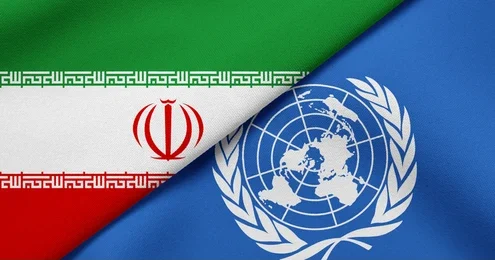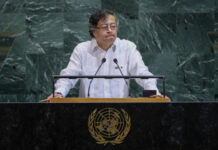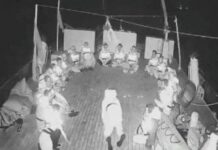How Russia, China may undermine UN efforts to reinstate Iran sanctions
The UN Security Council on Friday rejected a resolution seeking to permanently lift sanctions on Iran. This cleared the way for the automatic reactivation of sanctions under the “snapback” clause in the 2015 nuclear deal, formally called the Joint Comprehensive Plan of Action (JCPOA).
The European trio of France, Germany, and the UK, backed by the United States, triggered the process on 28 August, accusing Iran of violating the deal. The draft, presented by South Korea, failed to pass, winning only four votes, China, Russia, Pakistan, and Algeria, while nine opposed and two abstained, Irans Press TV explains.
How did Russia and China react?
Russia strongly opposed the return of sanctions, arguing that the snapback mechanism was being misused. Its ambassador, Mikhail Ulyanov, said the move could backfire. China backed Russia, saying unilateral actions weaken international diplomacy.
Iran also criticised the vote, calling it “unlawful and provocative,” particularly after its nuclear facilities were recently attacked in strikes it blamed on Israel and the US.
Tehran warned it could end its recent cooperation deal with the International Atomic Energy Agency (IAEA) if snapback proceeds.
READ ALSO: China, Russia stand with Iran to block European push for UN sanctions snapback
What happens next?
Because the resolution failed, the old UN sanctions automatically return under Resolution 2231. These cover arms sales, nuclear technology, financial transactions, and other restrictions. All UN members are legally required to follow them.
Before the 2015 nuclear deal, sanctions included an arms embargo, restrictions on Iran’s missile programme, asset freezes, and bans on nuclear materials.
Now, the EU and the three European countries are expected to start planning how to enforce them.
How could Russia and China slow things down?
While Moscow and Beijing cannot veto snapback sanctions, they can interfere with how they are enforced. Much depends on cooperation among UN member states, where Russia and China can cause delays.
One way is by blocking the revival of the old Resolution 1737 Sanctions Committee or stalling the appointment of its expert panel, both crucial for monitoring and implementing sanctions.
READ ALSO: Iran bolsters air defenses at rapid pace with China’s assistance – Report
What was the 1737 Sanctions Committee?
Set up in 2006, the committee was tasked with enforcing nuclear sanctions on Iran, listing banned individuals and organisations, and working with a team of experts. It was dissolved in 2015 when the JCPOA lifted sanctions.
To fully bring back sanctions now, this committee would have to be restored, something Russia and China could delay or obstruct.
The role of the panel of experts
The panel, created in 2010, supported the committee by investigating violations and reporting to the Security Council. Without it, the sanctions system is weaker.
Russia and China could block the reappointment of these experts or stop new resolutions to restart their work.
READ ALSO: Iran vows to stand by Qatar after deadly Israeli strike on Doha – Iranian Chief of Staff
Economic and diplomatic leverage
Beyond the UN, Moscow and Beijing have other tools. Both plan to continue buying Iranian oil and can bypass sanctions through payments in yuan, rubles, barter, or even cryptocurrency. They also have alternative banking systems to avoid SWIFT restrictions.
Diplomatically, they could delay resolutions, resist enforcement, and encourage other countries to ignore the sanctions, calling them political and illegitimate.
Iran argues that since Europe failed to uphold its own JCPOA promises after the US quit the deal, it has no right to activate snapback.
Follow the Neptune Prime channel on WhatsApp:
Do you have breaking news, interview request, opinion, suggestion, or want your event covered? Email us at neptuneprime2233@gmail.com





